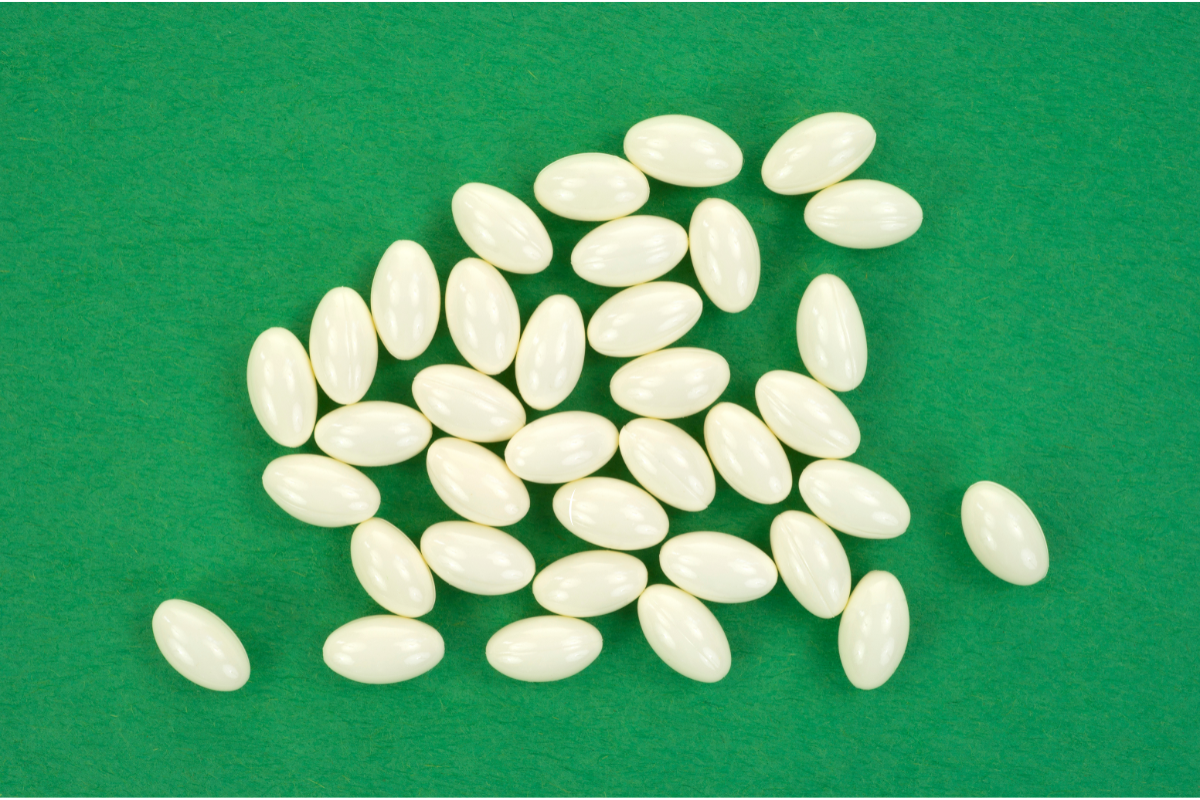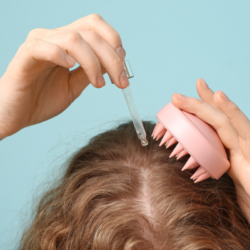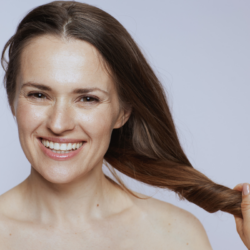Biotin, also known as vitamin B7, B8 or vitamin H, is a water-soluble vitamin essential to the human body’s energy metabolism. It is frequently cited for its supposed benefits on hair and nail growth, although scientific evidence in this area is still limited. This article takes an in-depth look at the indications, mechanism of action and potential side effects of taking biotin.
When should Biotin be taken?
B8 is mainly used in the treatment of biotin deficiency and in the management of pathological hair and nail disorders. Common indications include :
- Hair loss syndrome or brittle hair.
- Biotinidase deficiency, a rare condition.
- Metabolic support during pregnancy or breast-feeding, periods when biotin requirements may increase.
People in good health generally do not need to take biotin-based food supplements, as this vitamin is widely available in a balanced diet.
Biotin mechanism of action
This vitamin B7, is an essential player in many biological processes that support the proper functioning of the body. Its main role is to act as a coenzyme, meaning that it helps enzymes to carry out their tasks in various biochemical reactions. These reactions are crucial for breaking down the nutrients we consume – carbohydrates, fats and proteins – and converting them into energy that can be used by the body.
One of the key mechanisms by which biotin is involved is the carboxylation of acetyl-CoA to malonyl-CoA. This chemical reaction is essential in the synthesis of fatty acids, which are fundamental components of cell membranes and are also used to store energy. Without this conversion, our body would not be able to efficiently manufacture the fats it needs to function properly.
More recent research has shown that biotin also plays an important role in regulating epigenetic processes. This means that it can influence gene expression without directly modifying the DNA sequence. In other words, biotin can help to ‘switch on’ or ‘switch off’ certain genes, thereby influencing various bodily functions, including cell growth and regeneration. It is also involved in cell signalling, a process by which cells communicate with each other to coordinate actions within the body.
Another major role of this vitamin is to facilitate the conversion of food into glucose, the main source of energy for the brain and muscles. More specifically, it helps to catalyse biochemical reactions that convert the food we eat into glucose, the simple sugar that circulates in our blood and is used as fuel for all our daily activities.
Administration and dosage of Biotin
Recommendations for vitamin B8 intake vary according to individual needs. Here are some general guidelines:
- Daily dosage: There is no fixed daily recommendation for biotin in healthy adults. However, the doses generally used range from 5 µg to 35 µg per day.
- Routes of administration: Biotin is mainly administered orally in the form of tablets or capsules, but may also be administered intravenously in cases of severe deficiency.
- Pregnancy and breast-feeding: Pregnant or breast-feeding women may have an increased need for biotin due to its more rapid metabolism during these periods.
Side effects and interactions
B8 is a safe, non-toxic vitamin. Side effects are rare, but here are a few things to watch out for:
- Mild side effects: Gastric upset may occur if you take too much biotin, although this is rare.
- Drug interactions: Biotin may interact with certain anticonvulsant drugs, such as carbamazepine and phenobarbital, by reducing its absorption. Smokers may also require higher doses due to the rapid degradation of the vitamin.
- Interference with hormone tests: Biotin may distort certain test results, particularly those of hormone tests based on streptavidin-biotin interactions, leading to false positives or false negatives.
Contraindications and precautions
This vitaminhas no major contraindications. However, a few precautions should be taken:
- Monitoring of patients on anticonvulsant therapy: These patients may require an increase in biotin doses.
- Smoking: Smokers should be monitored for a possible increase in biotin requirements.
- Caution in diabetics: Although rare, over-consumption of biotin could lead to hyperglycaemia, requiring particular caution in diabetic patients.
The role of Biotin in hair health
Although widely promoted for its supposed benefits on hair and nails, scientific evidence in this regard is limited. Current studies suggest that biotin may be beneficial in cases of *(brittle hair, unmanageable hair syndrome), but for healthy individuals, there is no clinical evidence that biotin improves hair quality or quantity.
Some documented cases of biotin deficiency manifest as symptoms such as hair loss (alopecia), but these cases are rare and often linked to underlying metabolic disorders.
Toxicity and safety
Biotin is considered to be very safe, even if taken in excess. As it is a water-soluble vitamin, excess is excreted in the urine. Signs of overdosage, although rare, may include:
- Insomnia.
- Excessive thirst and polyuria (frequent urination).
There is no specific treatment for biotin intoxication, and symptoms generally disappear when excessive intake is stopped.
Biotin plays an important role in several essential metabolic processes, but its use as a supplement for hair and nail growth remains controversial. Although biotin deficiency can cause health problems, its use in healthy people has not been justified by solid scientific evidence. Healthcare professionals need to make their patients aware of the real uses and limitations of this often misunderstood supplement.
Sources
- Bistas KG, Tadi P. Biotin. [Updated 2023 Jul 3]. In: StatPearls [Internet]. Treasure Island (FL): StatPearls Publishing; 2024 Jan-





